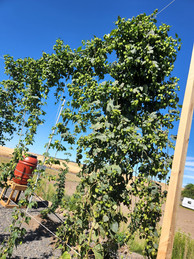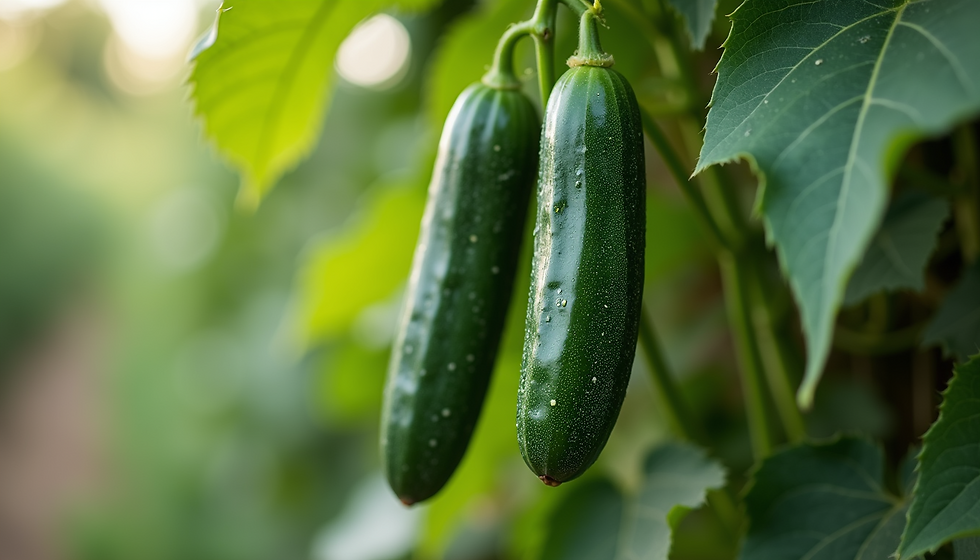Water Conservation & Sustainable Development
- odinsreward

- Sep 7, 2024
- 2 min read
We utilize gravity-fed drip irrigation systems for watering both hops and produce. Initially, we tested our first-generation system on a small scale with 5-gallon buckets. Over time, we scaled up to using 55-gallon barrels. By incorporating bark as mulch, we were able to reduce water evaporation and soil erosion. Additional watering was done after dark if required. Young hops require more water due to their shallow roots, with water needs decreasing as the roots grow deeper.
This watering system worked so well we decided to continue and expand it on the farm. When it came time to planning out the Hops Yard we wanted to continue the water conservation practices on a larger scale. The new system just built on that first model, however, now instead of a 5 gallon buckets it is 275 gallon IBC totes. We successfully implemented the new drip system and each tote waters 2-3 hops rows depending on the length of the row. These baby hops required watering twice a day at the beginning of the season and then we stop watering close to harvest to allow the cones to start drying. At that rate, the totes needed to be refilled every 3-4 days in the first year.
For the second consecutive year, the plants will only require watering once every other day, supplemented by additional watering as necessary. The containers now need refilling only every 7-10 days, resulting in a reduction of our water consumption. Moving into the third year, the watering frequency will decrease further as the root system becomes deeper and fully established. By the fourth year, we expect to eliminate the need for watering altogether, allowing us to transition the containers to support the next hops expansion. The drip line system will remain in place, equipped with a hose adapter for targeted watering until it is no longer required. Once the drip lines are no longer necessary for the current area, they will be repurposed for the new hops yard or adapted for use in growing produce.





















Comments